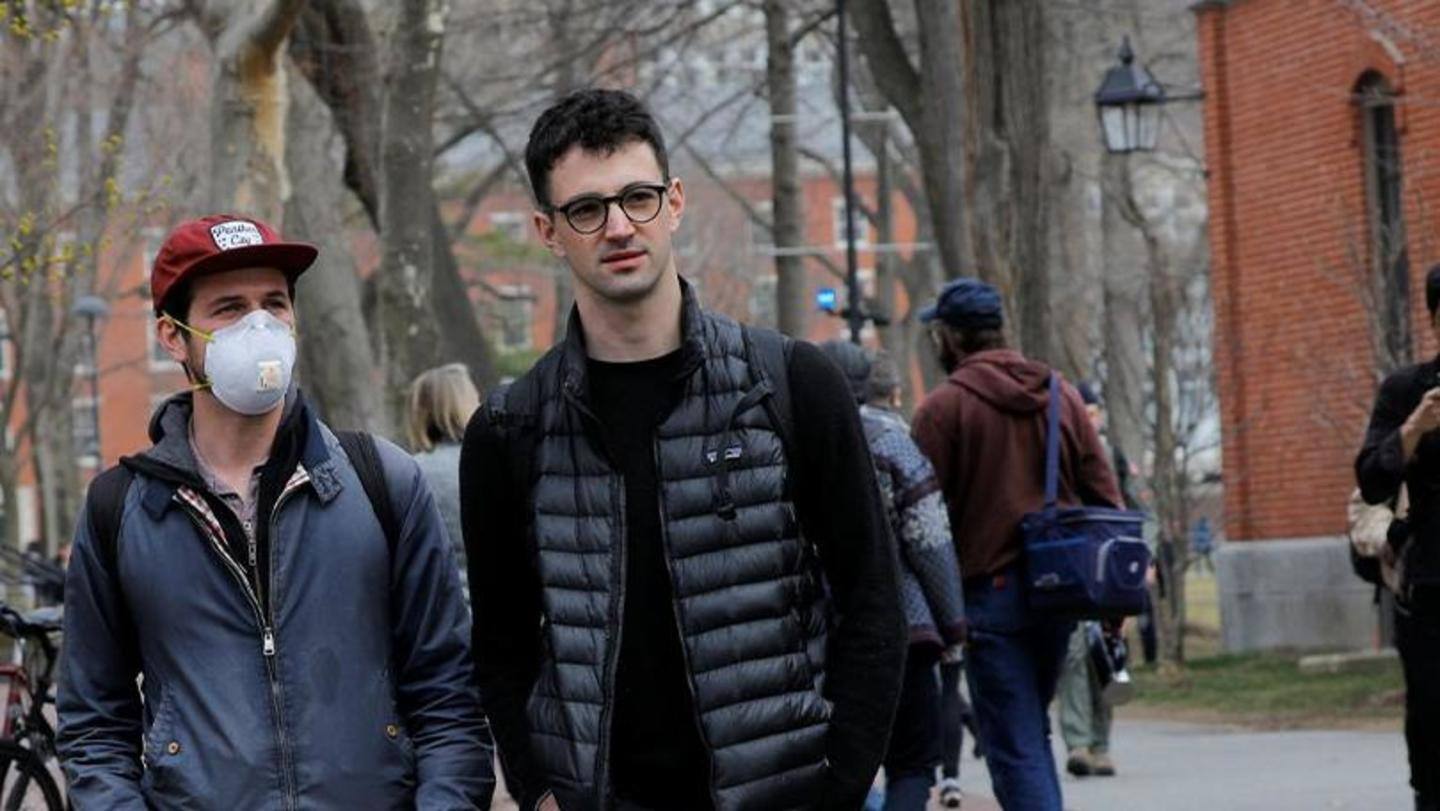
Coronavirus: New clusters emerge at US universities as semester begins
What's the story
Across the United States, new clusters of the coronavirus outbreak have started popping up at universities as the fall semester begins.
The new clusters—which are linked to student housing, off-campus parties, and packed bars in some cases—have emerged as students returned to college campuses. Some universities have since canceled in-person classes and are planning to switch to online classes.
Here are more details.
Details
Coronavirus spreads at North Carolina's flagship university during first week
On Monday, the University of North Carolina at Chapel Hill canceled in-person classes for undergraduates a week after the fall semester began.
Over the past week, UNC witnessed 130 confirmed cases among students and five among employees.
The university said it will switch to remote learning on Wednesday. It also said that it will make arrangements for students leaving campus housing.
Cluster
Clusters seen in dorms, fraternity house, other student housing
According to UNC, the coronavirus clusters were seen in dorms, a fraternity house, and other student housing.
Earlier, student newspaper The Daily Tar Heel had published an editorial headlined: "UNC has a clusterf*ck on its hands."
The editorial said the parties over the weekend were no surprise and that it was UNC's responsibility to disincentivize such gatherings. "We all saw this coming," it said.
Across US
New clusters force schools to move online
In recent weeks, the emergence of clusters has forced many schools to shift from in-person classes to online learning, David Long of Tuscany Strategy Consulting told the Associated Press, adding that others are expected to follow suit.
The Tuscany Strategy Consulting is developing recommendations for reopening colleges and universities with the Johns Hopkins Center for Health Security and the Council for Higher Education Accreditation.
Quote
'Controlling behavior of young adults challenging'
Long told AP, "It's because it's so difficult to create these systems where everybody is essentially behaving appropriately, meaning social distancing, wearing PPE (personal protective equipment) and not gathering in groups."
Long added, "It's challenging when you're trying to control the behavior in young adults, particularly in areas that are outside the classroom and off-campus."
Other colleges
University of Notre Dame reported 58 confirmed cases
The University of Notre Dame reported 58 confirmed cases linked to two off-campus parties after students returned to the campus in South Bend, Indiana, in early August.
Paul J Browne—vice president for public affairs at Notre Dame—said the university is prepared to suspend or discipline the hosts of such parties, calling them a "weak link" in an otherwise "very strong chain of health protection."
Other colleges
23 cases at off-campus sorority house at Oklahoma State University
At Oklahoma State in Stillwater, 23 confirmed coronavirus cases were reported at an off-campus sorority house. A widely-circulated video showed students packed into a nightclub over the weekend. The students have now been placed in isolation.
Similarly, university officials in Tennessee, Georgia, and Alabama also expressed frustration over the lack of physical distancing, crowded bars, etc., once students returned to campus.
Other colleges
Bradley University to start in-person classes soon
However, Bradley University in Peoria, Illinois, is going ahead with plans to resume in-person classes. A dozen students had tested positive last month after an off-campus gathering.
The classes are set to start from August 26 and students will start moving into dorms this weekend.
University spokesperson Renee Charles said they are issuing time slots to students for moving in to ensure social distancing.
Quote
'Universities doing best they can'
Mildred García—head of the American Association of State Colleges and Universities—told AP, "[University presidents] are doing the best they can with their staff and trying to educate the students about masks and social distancing and the effects of this virus."
"They're doing all they can—and yet these are young people. When we think back about when we were young, sometimes you think you're invincible."